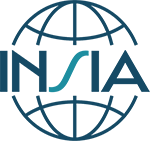National Institute of Excellence in Health and Social Services (INESSS)
“We promote clinical excellence by integrating scientific, experiential and contextual knowledge through multidimensional deliberation.”

History, structure and governance
The Institut national d’excellence en santé et en services sociaux (INESSS – National Institute of Excellence in Health and Social Services) was created on January 19, 2011, succeeding the Conseil du médicament and the Agence d’évaluation des technologies et des modes d’intervention en santé (AETMIS).
The Institute functions as an independent governmental agency. It has a Board of Directors, a Scientific Council, Permanent Deliberative
Committees, and 8 directorates.
The reporting role is formalized in INESSS’s law. The institute must submit a three-year plan of activities to the Minister for approval and publish it on its website. It must also send the Minister an annual update of the plan, which must also be published on its website.
The institute is a legal person and a mandatary of the State. The property of the institute forms part of the domain of the State, but the execution of its obligations may be levied against its property. The institute binds only itself when acting in its own name.
Mission
INESSS’s mission is to promote clinical excellence and the efficient use of resources in the health and social services sector.
INESSS’s vision is to be an essential reference helping to better support decision-making and improve practices.
How INESSS works
INESSS’s work encompasses the following :
- to assess the clinical advantages and the costs of technologies, medications and interventions.
- to prepare notices and recommendations, and develop clinical practice guides to ensure optimal use of technologies, medications and interventions.
- to determine performance evaluation criteria for health care and services trajectories and implementation of best practices.
- to distribute scientific productions, approved by ministerial authorities, to health and social service providers and managers, and to publish them.
- to foster the implementation of the recommendations and practice guides, using various information, knowledge transfer and awareness tools.
Areas encompassed in Social Intervention Assessment
The Institute undertakes substantial work in the following areas :
– Conduct/production of systematic reviews
– Developing methods for producing systematic reviews
– Development of knowledge tools based on evidence
– Promoting the use of systematic reviews
– Health economy
– Ethical assessment
– Knowledge translation and dissemination
The areas covered by SIA are :
– Mental Health
– Youth and Families
– Elderly Care
– Intellectual Disability
– Physical Disability
– Autism Spectrum Disorder
– General Social Services
– Addictions
– Homelessness
Dissemination
The Institute produces social intervention assessment reports that are published on its website and are disseminated through the provincial government instances.
Future Plans
The 2021-2024 strategic plan defines the orientations, objectives, indicators and targets that will guide INESSS’s actions for the next three years in response to the challenges facing the health and social services network.
First, INESSS intends to remain at the forefront of the evolution of technologies and intervention modes in order to inform, in a timely manner, public coverage choices and accelerate access to the most promising innovative interventions. In addition to this objective, the Institute intends to continue to promote the adoption of good practices based on the most up-to-date data and is committed to support the optimization of care pathways and services for users, by enhancing its activities towards greater clinical relevance and a reduction in low-value care and services.
Second, the Institute wishes to increase its influence and support the achievement of measurable results. This evolution will take place through partnerships, improving our existing collaborations and building new ones to expand our skills and capabilities. To achieve this, we will work to strengthen our ties with the ministry, public organizations, institutions, professional orders, medical federations and patient and user associations. In particular, we will ensure that we strengthen strategic consultation with the various categories of stakeholders and groups to whom our productions are addressed by focusing on the relaunch of the Table de concertation.
Over the next three years, INESSS will mobilize the talents and expertise of its staff and collaborators around a scientific and organizational project in support of value creation for the Quebec community.
Agency Information
Country: Canada
Population served (mil): 8,5 (province of Quebec)
Description of population served (level): Regional, provincial
Current SIA budget (mil Euro): 2.1 mil Euros
Permanent staff: 260 (30 in Social Services and Mental Health)
Consultants:
Ongoing SIA projects: 18 (Youth and families, elderly care, people with intellectual or physical disability, autism spectrum disorder, addictions, homelessness, mental health)

Contact Information
Director General: Dre Michèle de Guise
Director SIA division: Marie-Claude Sirois
Contact person: Marie-Claude Sirois
Address 2021 Union Ave, Suite 1200, Montreal, Quebec, Canada, H3A 2S9
Phone number: 514-873-2536
Internet: www.inesss.qc.ca
Email: marie-claude.sirois@inesss.qc.ca
